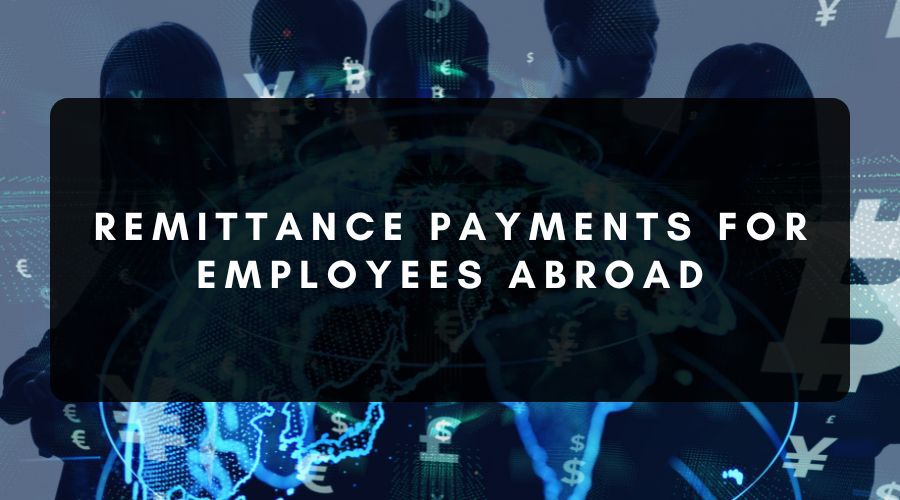
Remittance Payment Guide for Paying Employees Abroad
If you have team members who live in foreign countries, you’ll need to learn about remittance payments. An international payment remittance is a money transfer from one bank to another bank in a different country. This can be between individuals, but in a business context, it can also be from a company to a remote employee.
When choosing a remittance payment provider, it’s important to prioritise multi-currency payment processing, fast settlement times, reasonable transfer fees and international customer support. Once you find the right solution, you will be able to pay your international team members quickly and efficiently.
How to Make an International Remittance
Businesses have various options when it comes to paying international employees.
If Both Your Business and Employees Are in the European Union
Business owners who employ remote workers within the EU can make SEPA (Single Euro Payments Area) payments to these employees. Cross-border remittance payments using SEPA transfers work just the same as national payments and can be done via credit transfer or direct debit.
Currency, fees and processing times: All SEPA transfers must be made in Euros, and the transfer fees are the same as what a local bank would charge for a national transfer. The processing time for EFT payments (electronic funds transfer payments) in the SEPA area is typically 48 hours or less.
If Your Business Pays Employees Outside of the European Union
When paying workers outside of your geographical region, it’s important to establish clear expectations and norms because team members’ expectations may differ from country to country. In some countries, monthly payments are the norm, whereas, in others, biweekly payments are preferred.
As far as the methods you can use to send money abroad to these workers (once you’ve established the frequency and terms of payment), there are several options:
Direct Transfer
International money transfers can be sent between banks or credit unions directly. While direct bank-to-bank transfers tend to be slow and expensive, they can sometimes be the best and cheapest option, depending on the bank you use and the countries the money is being sent to and from.
Payment Platform or E-Wallet
Digital wallet payment platforms such as Paypal, Wise and Worldremit can be used instead of a direct deposit. Each of these money transfer services comes with its pros and cons.
- PayPal’s electronic payment system charges a 5% fee to transfer funds to a foreign account (capped at around €5) and its currency conversion rates tend to be fairly expensive. However, the transfer is completed within minutes.
- Worldremit and Wise charge relatively low fees but aren’t available in every country. The money may be slow to arrive in your bank account if you use either of these two services.
Wire Transfers
A wire transfer is another type of electronic funds transfer (EFT payment) that is made from one account to another using a secure network. Often, the SWIFT network is used to make international money transfers of large or small sums.
Wire transfers tend to be the preferred option when large sums are being transferred because they are faster than bank transfers and usually attract a flat fee rather than a percentage fee. Wire transfers are generally a safe and reliable method of sending money, but tend to cost more than bank transfers because they are processed on demand rather than in batches.
How An International Payment Processor Can Help Streamline Your Global Transfers
Whichever method you choose for your remittance payments, having a multi-currency payment processor can make it easier for your business to pay your international remote workers.
- Multi-currency electronic funds transfer: Businesses can open different accounts in different currencies to avoid the costs of currency conversion.
- Fast settlement times: Global payment processors with e-wallets allow you to send and receive funds quickly and efficiently.
- Automate payment processing: Payment processors can help you save time and effort by automating recurring payments.
- Merchant services: Integrated merchant services help you collate all of your payment data automatically, no matter how the payment is made.
- International customer support: The best global payment processors provide customer service when and where you need it.
Other Considerations When Hiring Abroad
When you hire remote foreign workers, you’ll also need to keep the following in mind:
- You need to understand and follow the employment and payroll laws in the countries where your employees reside. Non-compliance may result in penalties or fines.
- For European businesses, hiring remote workers from outside the EU is very different from hiring European citizens.
Streamline International Remittances with the Help of a Global Payment Processing Provider
Hiring internationally brings a host of benefits. However, it can also make things a little more complicated on payday. It’s important to spend some time researching your options—together with their pros and cons—so that you can make the right choice for your business.
If you have several international workers, partnering with a global payment processing provider can save you a great deal of time, as well as make it cheaper and easier to pay your international team members. Once your systems are set up, you can confidently go ahead and recruit top talent from all around the world.

